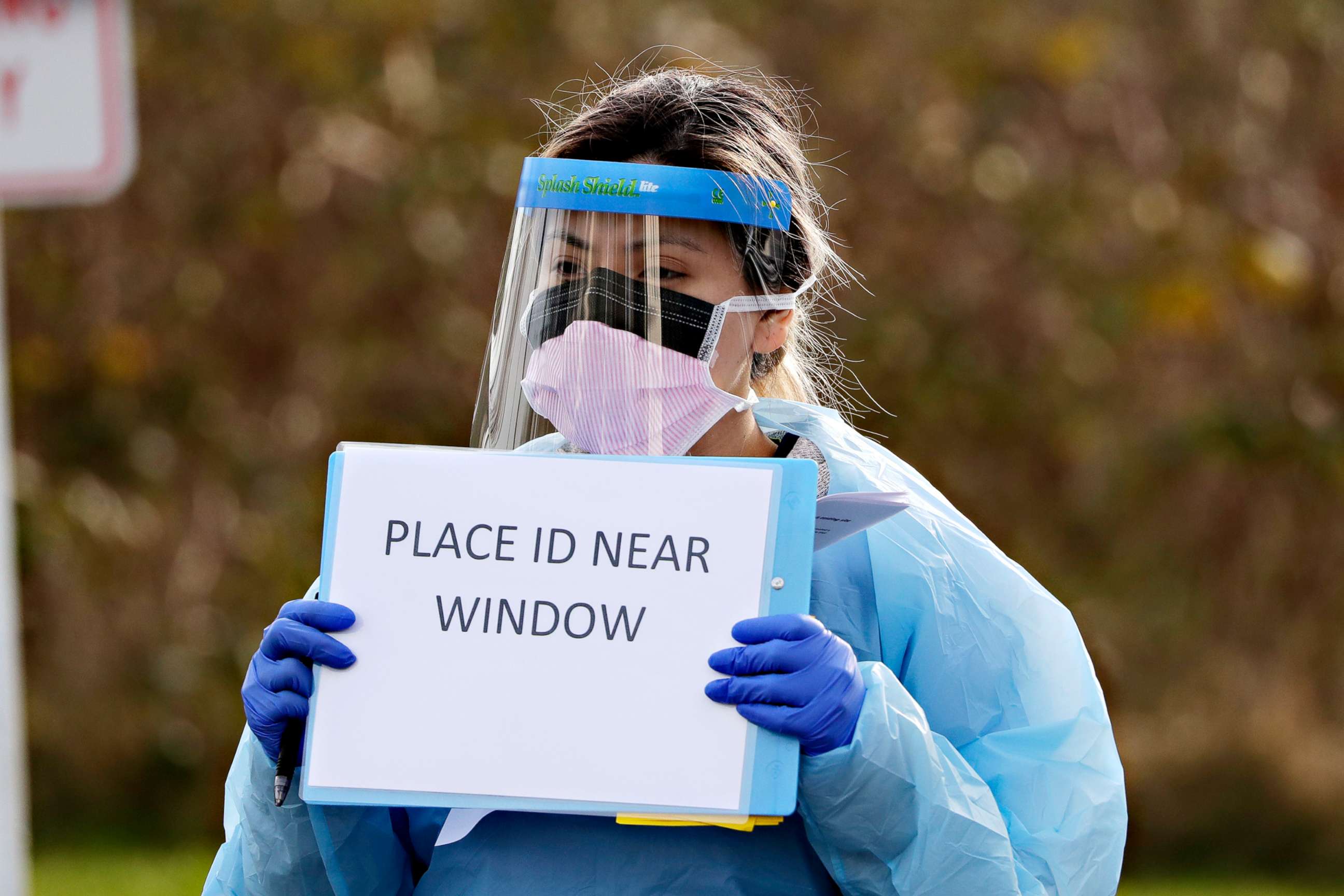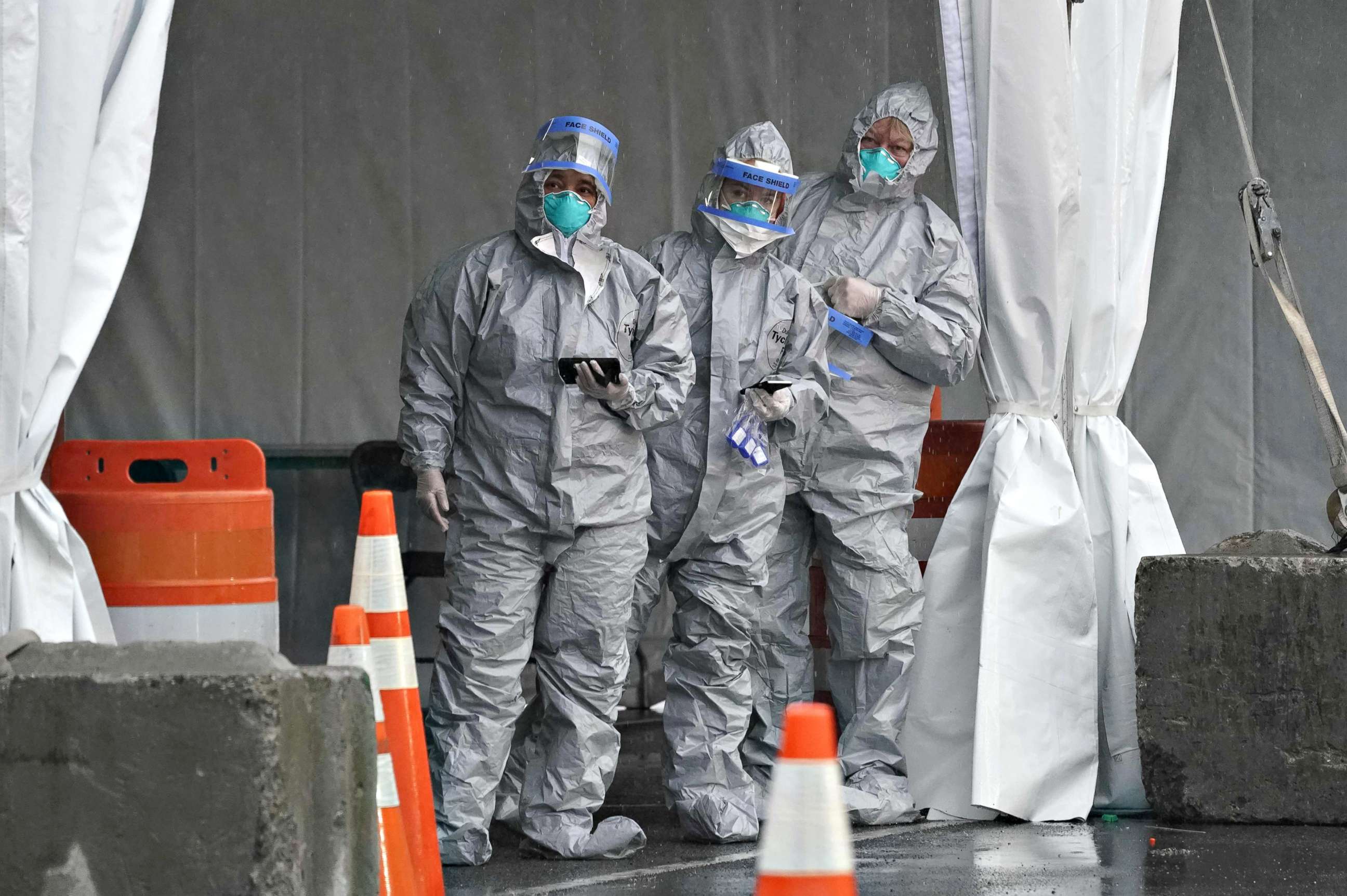State governors taking lead on coronavirus precautions as federal government works to define plan
Health experts commend local cancellations and shutdowns.
As the coronavirus outbreak continues and the federal government scrambles to come up with a national plan to keep people safe, governors are stepping up.
And health experts have said that their actions, such as shutting down business and calling for self-isolation, have proved crucial at helping contain the outbreak.
Governors of states with the most cases, such as Washington's Jay Inslee, New York's Andrew Cuomo and California's Gavin Newsom, made the right decision by enacting these policies, according to John Auerbach, CEO of Trust for America's Health, a public health advocacy group.
What to know about Coronavirus:
- How it started and how to protect yourself: Coronavirus explained
- What to do if you have symptoms: Coronavirus symptoms
- Tracking the spread in the US and Worldwide: Coronavirus map
"Part of the reason the states and local governors have taken action is because of the recommendations from the federal government have changed rapidly," he said. "They are doing the best job they can, and I think we will see the action they are taking will lead to rapid decreases in the number of cases."
Auerbach, formerly the chair of both the Boston and Massachusetts health departments, said one of the most important actions taken by governors and other local leaders has been providing reliable information to the public.

Marianne Udow-Phillips, executive director of the Center for Health and Research Transformation at the University of Michigan, said the governors' messages stick with the public in a way those from the federal government may not.
"Governors hear directly from health care providers, the local business community, school leaders and citizens at large," she said in an email. "They are deeply attuned to local and statewide impacts."
Joshua Epstein, a professor of epidemiology at the NYU School of Global Public Health, stressed that while the states are taking a lead in their regions, it's important that there be consistency with their coronavirus actions. He noted that New York, Connecticut and New Jersey's joint announcement to close non-essential stores was a smart move.
"They don't want people running across state lines to buy goods, and they've worked to keep policies the same," he said.
Epstein added that the governors have been smart to not wait or rely on the White House for policy recommendations, because faster responses have been required.
"I'm not sure what the benefit has been at this point to communicate with the administration. They've been dismissive up until recently, and haven't stepped up," Epstein said.
Previous statements by the president against the governors, specifically Cuomo, Inslee and Michigan Gov. Gretchen Whitmer, have made that divide between the federal and state governments worse, according to Christina Greer, an associate professor of political science at Fordham University.
Political bickering can frustrate citizens and prevent them from receiving useful information.
"They need to keep the public aware and what is going on. People don't need inaccurate information," Greer said.

Although Cuomo fired back at Trump earlier in the week, after the president tweeted that the New York governor should "do more," they apparently reached a truce Wednesday. The governor said that he's communicating with the White House and he and the president are working to come up with more concrete plans to help the state, including that the USNS Comfort, a Navy hospital ship, would be coming to New York.
"I told him, 'Look, we are fighting the same war, you have my back and I have yours," Cuomo said at a news conference.
Auerbach said governors and state officials taking a less combative approach could pay even bigger dividends.
"In general, when responding to a pandemic, it is right to keep the eye focused on the steps necessary to protect the public and not become distracted with a political difference," he said.




